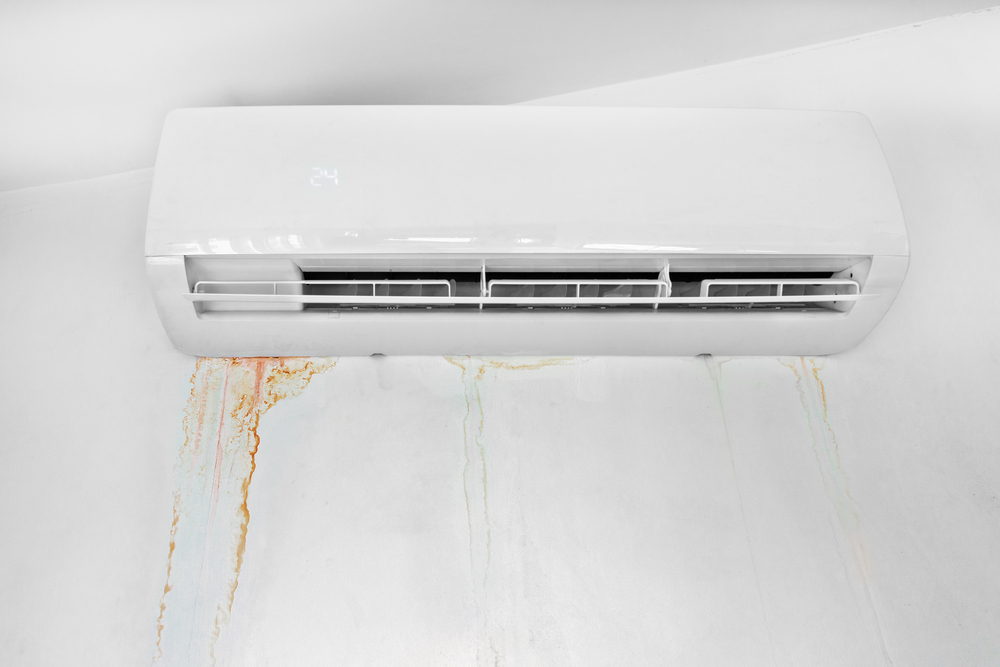 One of the golden rules of using sophisticated technology tends to be that it comes with unexpected complications. While you might expect to have occasional technical difficulties with your smartphone, computer, or even your car, many people find themselves stymied by issues with another piece of technology they depend on for their everyday comfort: their air conditioner. Air conditioning is much more complicated than most people think, and because it runs in the background, it’s easy to take advantage of the comfort it offers. When your air conditioner starts to exhibit erratic behaviour though, it’s important to understand the problem so that you can determine whether it requires timely professional service.
One of the golden rules of using sophisticated technology tends to be that it comes with unexpected complications. While you might expect to have occasional technical difficulties with your smartphone, computer, or even your car, many people find themselves stymied by issues with another piece of technology they depend on for their everyday comfort: their air conditioner. Air conditioning is much more complicated than most people think, and because it runs in the background, it’s easy to take advantage of the comfort it offers. When your air conditioner starts to exhibit erratic behaviour though, it’s important to understand the problem so that you can determine whether it requires timely professional service.
One of the most common issues reported by air conditioner owners across the United States is leakage. If you see water around your cooling unit, you might be concerned—and with good reason. Leaks in your air conditioner can be caused various factors, and they can be a major inconvenience. However, before you jump on the phone and call a contractor, you should probably learn as much as you can about the nature of your leak so that you can take as many steps as possible to correct it yourself.
It’s not always possible to fix a leak on your own—it depends on where it’s coming from, and what kind of threats it poses to your system. However, even when using a contractor, it’s best to have some knowledge of the situation. Anything you can tell them to make their job easier will probably reduce the amount of time they charge you for, which could save you a good chunk of money. With that in mind, let’s look at how to classify some common air conditioner leaks.
Leaks or Condensation?
Before we go any further, it’s important to note that seeing water near your unit isn’t always a cause for concern. Your AC has a dehumidifying process after all, which often creates a layer of condensation and can result in a few drops around your drain pipe. However, anything beyond a small puddle is probably due to a leak, especially if it lasts for more than 24 hours. If you’re facing a leak, the next step is to figure out where it came from and what kind of damage it might do.
Leaks from the Condenser Pump
One of the most common leaking parts of an air conditioner is the condenser pump. Luckily, this is also one of the easiest to test. To find out whether your condenser pump is leaking, just pour a bit of water into your condenser pan and make sure the pump has power. If it can’t pump out the excess water, your leak is probably caused by your condenser or motor. Professional service will be required to diagnose this problem in more detail, and to fix the leakage properly.
Leaks from an Improper Install
The way that your unit was installed can also cause leaks if certain mistakes were made. Start by looking around your outdoor unit and making sure that it’s on level ground. You’ll also want to look around the interior of your building for closed vents. If your unit is obviously not level, that’s probably the reason for your air conditioner leaking water —and you’ll want to have a conversation with the person who installed it. If your vents are all closed, your unit is more likely suffering from too much pressure, in which case your solution could be as simple as opening a few of them to provide some relief.
Leaks from Filters and Drains
Assuming that your problem isn’t so easy to identify, you’ll probably need to look at a few of your HVAC’s more sensitive parts. For instance, it’s possible that your drain is blocked, which prevents water from leaving your unit properly. Look at your tube and remove any noticeable blockage. If this doesn’t work, check your filters. Dirty filters can prevent enough air from reaching your condenser coil, making it too cold and causing ice to form on it. When this ice melts, you get leaking water—so make sure your filters are always clean!
When to Call Professionals
If you can’t find the cause of your leak in any of these areas, it’s best to call a service technician and have them perform an inspection. You’ll have to pay for the labor and any replacement parts, but it’s the only way to make sure your system can work safely again. Leaking water isn’t just an inconvenience—it can also cause electrical problems and shorten the lifespan of your unit. To stay comfortable and healthy, make sure to investigate the cause of leaking water as soon as you notice it, and to get proper help if you can’t quickly take care of it yourself. Contact us for more information.

